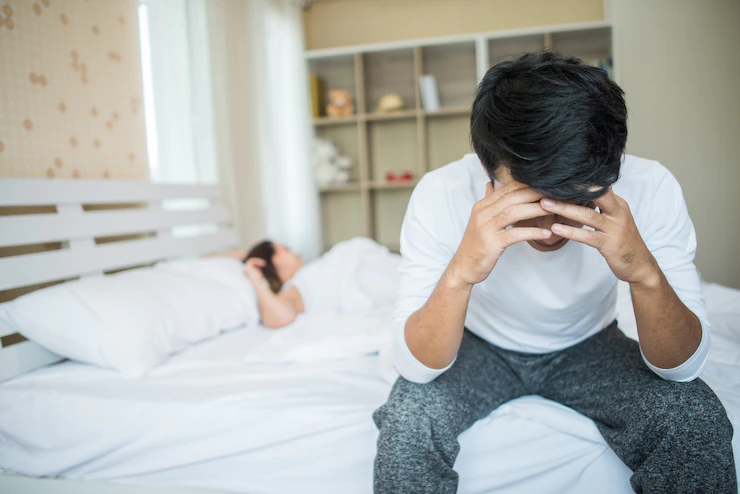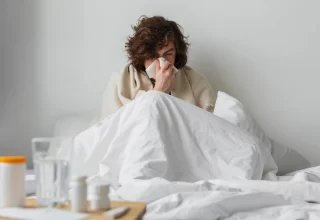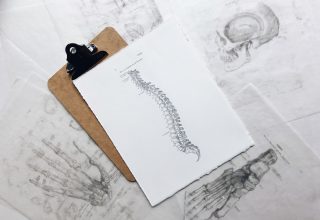Male Hormonal Imbalance: Symptoms And Prevention
Hormone imbalance happens when your body has too much or too less of one or more hormones.
Hormones are your body’s chemical messengers that deliver messages from the bloodstream to organs and tissues and maintain the healthy functioning of different body parts.
Any hormone imbalance can cause major changes to your body which might need treatment. Hormonal imbalance can affect the different functions of your body, including:
| 1. Metabolism 2. Sleeping pattern 3. Low sex drive 4. Erectile dysfunction 5. Weight gain 6. Memory loss 7. Anxiety, depression 8. Mood 9. Cognitive decline 10. Increased heart rate |
Men generally experience hormonal changes in their testosterone levels. Low testosterone is also known as hypogonadism which can cause low energy levels, reduced strength, and low sex drive in men.
While many men go for custom testosterone replacement therapy as a solution, many opt for natural ways to boost testosterone levels in their bodies. Men can also have an imbalance in growth hormones, adrenaline, and insulin.
Contents
Causes of Male Hormonal Imbalance

Though hormone imbalance in men can possibly be a result of different medical conditions ( especially, which are related to endocrine glands), it can also be triggered by stress, poor nutrition, and medications.
Major causes of male hormonal imbalance include Andropause, Hypothyroidism, Adrenal Fatigue, Hypothyroidism, and Hyperthyroidism. These conditions are generally caused by an imbalance in insulin, cortisol, or thyroid hormones.
Symptoms

| 1. Loss of Muscle Mass 2. Hair Loss 3. Low Energy Levels 4. Low Sperm Count 5. Enlarged Breast Tissues 6. Mood Swings |
1. Loss of Muscle Mass:
Hormonal imbalance in men means too much or too less testosterone, and low levels of testosterone can have multiple side effects on the body, including weakness and loss of muscle mass. Low testosterone levels can make it difficult to maintain the body’s muscle mass, which is why men experience muscle loss.
2. Hair Loss:
One of the major causes of hair loss in aged men is hormonal fluctuations. As a man ages, testosterone secretion is significantly reduced, which can cause hair loss on the scalp and hair growth in the ears and nose. Men with high levels of hormonal imbalance are suggested to go for testosterone replacement therapy for their overall well-being.
3. Low Energy Levels:
Again, low testosterone or low T in men is the major reason why men feel sluggish and tired all the time. It can also lead to increased body fat, decreased motivation, and sleep problems, resulting in chronic low energy and mental and physical fatigue.
4. Low Sperm Count:
Abnormalities in sperm function or low sperm count can be linked with hormonal imbalance. The major symptoms of low sperm count include problems with sexual function (low sex drive or erectile dysfunction), pain and swelling around the testicles, and decreased body hair.
5. Enlarged Breast Tissues:
Also known as gynecomastia, this condition is characterized by overdevelopment of the breast tissues in men and is a sign of hormonal imbalance. In this condition, the breast area grows unevenly. An imbalance in testosterone levels can be the potential cause of gynecomastia.
6. Mood Swings:
Other than physical changes, hormone fluctuations in men can also lead to mood swings, feelings of sadness, anxiety, and depression. Low levels of testosterone and thyroid disorders can cause frequent mood changes.
Prevention: Ways You Can Balance Your Hormones
| 1. Increase Your Protein Intake 2. Exercise 3. Maintain a Healthy Weight 4. Cut Down Your Sugar Intake |
1. Increase Your Protein Intake:

Experts recommend eating a diet rich in protein and fibers. Protein intake helps build amino acids that your body needs and also pumps up the production of peptide hormones (protein-derived hormones). Men must take at least 20-30g of protein per meal in the form of eggs, lentils, chicken breast, or fish. Following a healthy diet rich in protein and other essential nutrients is great for maintaining healthy hormone levels.
2. Exercise:

Engaging in physical activity can strongly impact hormonal health. Not only does it increase the blood flow to the muscles, but it also increases hormone receptor sensitivity, making the delivery of nutrients smoother and quicker.
3. Maintain a Healthy Weight:

Weight gain and obesity are more likely to result in hormonal imbalance leading to complications in reproductive health and insulin resistance. Hence, doctors suggest maintaining a healthy weight to cut down your risk of severe hormonal changes.
4. Cut Down Your Sugar Intake:

Limited sugar intake is linked with ideal hormone function and avoiding the risk of obesity, diabetes, and other diseases which could have adverse side effects. Doctors suggest avoiding foods and beverages immersed with artificial sweeteners, such as soft drinks, sports drinks, etc. Instead, one should consume natural sources of sugar, such as fruits.
Bottom Line
While hormonal imbalance can be prevented from the above-mentioned tips and suggestions, sometimes they aren’t enough to maintain optimal testosterone levels. In such cases, one can consider testosterone therapy as it can help achieve overall wellness.
Additionals:
- 4 Health Mistakes Men Make In Their 30s
- How To Break The Cycle Of Performance Anxiety?
- Meth Use And Sexual Function: How Meth Affects Female Body



